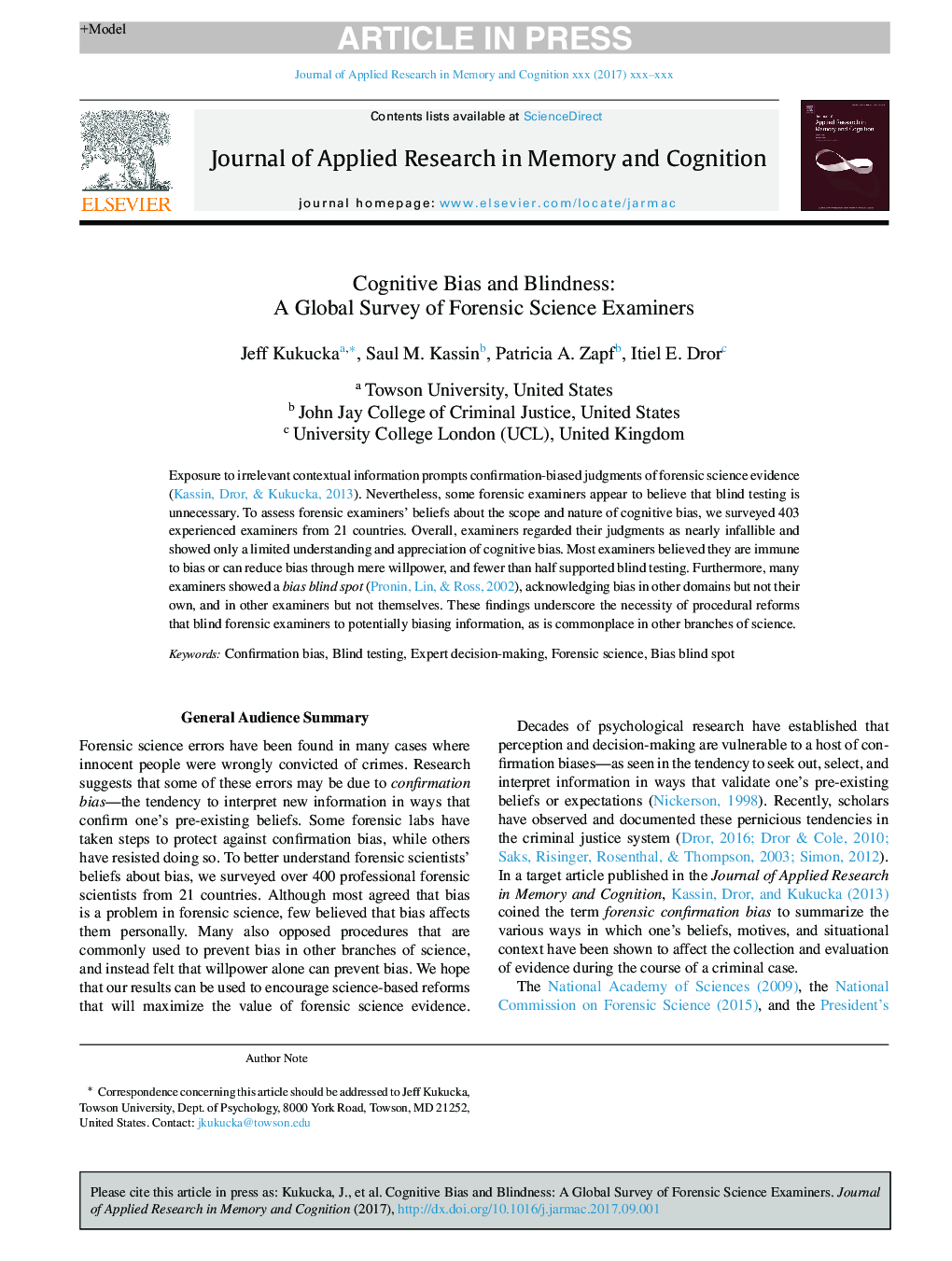| Article ID | Journal | Published Year | Pages | File Type |
|---|---|---|---|---|
| 7241816 | Journal of Applied Research in Memory and Cognition | 2017 | 8 Pages |
Abstract
Exposure to irrelevant contextual information prompts confirmation-biased judgments of forensic science evidence (Kassin, Dror, & Kukucka, 2013). Nevertheless, some forensic examiners appear to believe that blind testing is unnecessary. To assess forensic examiners' beliefs about the scope and nature of cognitive bias, we surveyed 403 experienced examiners from 21 countries. Overall, examiners regarded their judgments as nearly infallible and showed only a limited understanding and appreciation of cognitive bias. Most examiners believed they are immune to bias or can reduce bias through mere willpower, and fewer than half supported blind testing. Furthermore, many examiners showed a bias blind spot (Pronin, Lin, & Ross, 2002), acknowledging bias in other domains but not their own, and in other examiners but not themselves. These findings underscore the necessity of procedural reforms that blind forensic examiners to potentially biasing information, as is commonplace in other branches of science.
Related Topics
Social Sciences and Humanities
Psychology
Applied Psychology
Authors
Jeff Kukucka, Saul M. Kassin, Patricia A. Zapf, Itiel E. Dror,
